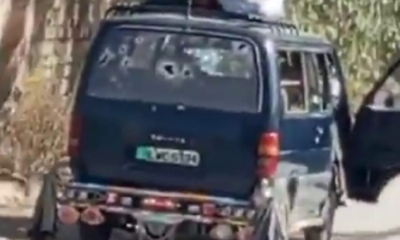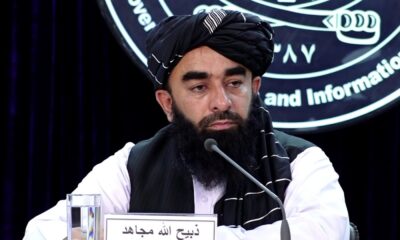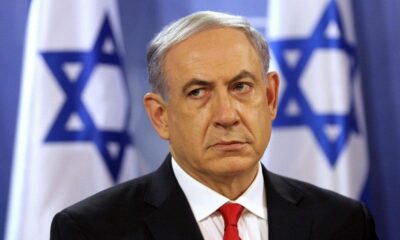Regional
Lebanon, Israel could agree to ceasefire within days, Lebanese prime minister says
Hezbollah did not immediately comment on the leaked ceasefire proposal.
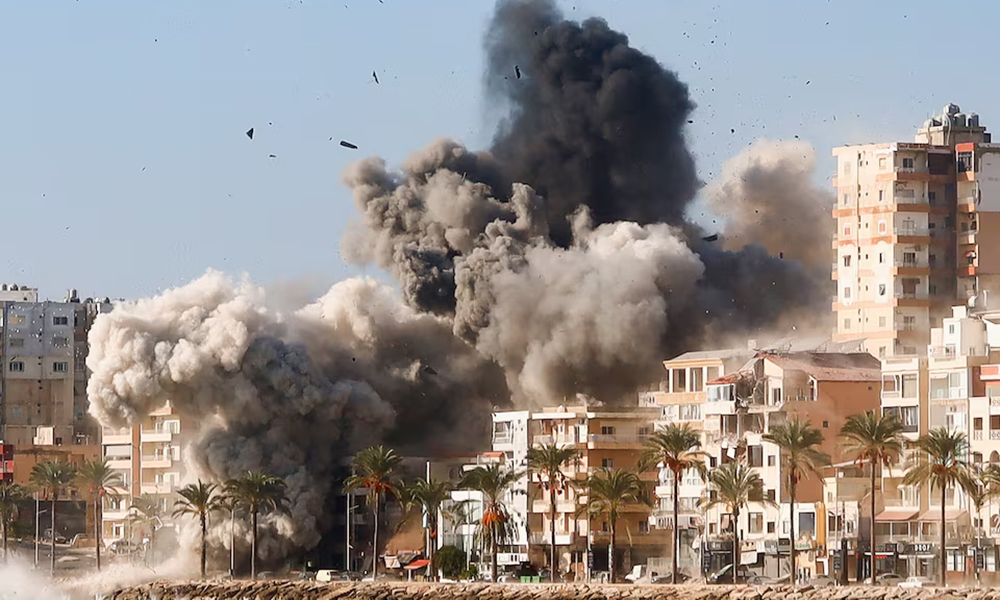
Lebanon's prime minister expressed hope on Wednesday that a ceasefire deal with Israel would be announced within days as Israel's public broadcaster published what it said was a draft agreement providing for an initial 60-day truce.
The document, which broadcaster Kan said was a leaked proposal written by Washington, said Israel would withdraw its forces from Lebanon within the first week of the 60-day ceasefire. It largely aligned with details reported earlier by Reuters based on two sources familiar with the matter.
Lebanese caretaker Prime Minister Najib Mikati said he had not believed a deal would be possible until after Tuesday's U.S. presidential election. But he said he became more optimistic after speaking on Wednesday with U.S. envoy for the Middle East Amos Hochstein, who was due to travel to Israel on Thursday.
"Hochstein, during his call with me, suggested to me that we could reach an agreement before the end of the month and before Nov. 5th," Mikati told Lebanon's Al Jadeed television.
"We are doing everything we can and we should remain optimistic that in the coming hours or days, we will have a ceasefire," Mikati said.
The draft published by Kan was dated Saturday. When asked to comment, White House national security spokesperson Sean Savett said: "There are many reports and drafts circulating. They do not reflect the current state of negotiations.”
But Savett did not respond to a query on whether the version published by Kan was at least the basis for further negotiations.
The Israeli network said the draft had been presented to Israel's leaders. Israeli officials did not immediately comment.
Israel and Lebanese armed group Hezbollah have been fighting for the past year in parallel with Israel's war in Gaza after Hezbollah struck Israeli targets in solidarity with its ally Hamas in Gaza.
The conflict in Lebanon has dramatically escalated over the last five weeks, with most of the 2,800 deaths reported by the Lebanese health ministry for the past 12 months occurring in that period.
Hezbollah did not immediately comment on the leaked ceasefire proposal.
Earlier on Wednesday, the group's new leader, Naim Qassem, said the Iran-backed armed group would agree to a ceasefire within certain parameters if Israel wanted to stop the war, but that Israel had so far not agreed to any proposal that could be discussed.
It was Qassem's first speech as secretary-general, a day after Hezbollah announced his election to the post after Israel assassinated the group's longtime leader Hassan Nasrallah.
Israel's operation against heavily armed Hezbollah in Lebanon continued to expand on Wednesday as the Israeli army launched heavy airstrikes on the eastern city of Baalbek, famed for its Roman temples, and nearby villages, security sources told Reuters.
Tens of thousands of Lebanese, including many who sought shelter in Baalbek from other areas, fled after an Israeli evacuation warning.
Bilal Raad, regional head of the Lebanese civil defence, said the scene was chaotic. "The whole city is in a panic trying to figure out where to go, there's a huge traffic jam," he said ahead of the bombardment.
Lebanon's health ministry said 19 people were killed in Israeli strikes on two towns in the Baalbek area on Wednesday.
It said 2,822 people have been killed in Israel's military campaign in Lebanon since October 2023. More than 1.2 million people have been displaced.
Following the airstrikes, the Israeli military said it had targeted Hezbollah fuel reservoirs in the Bekaa Valley region.
Responding to a question about Israel's bombardment of Baalbek, the U.S. State Department reiterated on Wednesday that Washington supports Israel's right to go after legitimate Hezbollah targets in Lebanon. But it said Israel must do so in a way that does not threaten civilians, critical civilian infrastructure and significant cultural heritage sites.
For a third straight day, Hezbollah reported intense fighting with Israeli forces in or around the southern town of Khiyam - the deepest Israel's troops are reported to have penetrated into Lebanon since fighting escalated five weeks ago.
Hezbollah also said it had targeted a military camp southeast of Tel Aviv in Israel with missiles.
The White House said U.S. security official Brett McGurk would visit Israel on Thursday along with Hochstein. A U.S. official had said they would be there to discuss a range of issues "including Gaza, Lebanon, hostages, Iran and broader regional matters".
The Lebanese prime minister did not comment on the draft proposal published by the Israeli network, which called for a permanent ceasefire to take effect after the initial 60-day period based on implementation of United Nations resolutions 1701 and 1559.
Mikati said Lebanon was ready to fully implement 1701, passed in 2006, which directed the demilitarisation of southern Lebanon and established a U.N. peacekeeping mission there.
Earlier this month, Hochstein told reporters in Beirut that better mechanisms for enforcement were needed as neither Israel nor Lebanon had fully implemented the 18-year-old resolution. The draft leaked on Wednesday called for creating an independent, international arrangement to oversee the ceasefire.
Resolution 1559 was adopted in 2004 and called for disbanding and disarming all militias in Lebanon.
Regional
Gunmen attack Pakistan passenger vehicles, killing at least 38 people

Gunmen opened fire on passenger vehicles in a tribal area in northwestern Pakistan on Thursday, killing at least 38 people and wounding 29, the chief secretary of the Khyber Pakhtunkhwa province, Nadeem Aslam Chaudhry, said.
Reuters reported that among the fatalities in the attack, which occurred in the Kurram tribal district, were a woman and a child, Chaudhry said, adding: “It’s a major tragedy and death toll is likely to rise."
No group claimed responsibility for the incident.
"There were two convoys of passenger vehicles, one carrying passengers from Peshawar to Parachinar and another from Parachinar to Peshawar, when armed men opened fire on them,” a local resident of Parachinar, Ziarat Hussain told Reuters by telephone, adding that his relatives were travelling from Peshawar in the convoy.
President Asif Ali Zardari, in a statement, strongly condemned the attack on passenger vehicles.
Regional
Pakistan’s ex-PM Imran Khan gets bail in state gifts case, his party says

A court in Pakistan granted bail to jailed former prime minister Imran Khan in a case relating to the illegal sale of state gifts, his party said on Wednesday.
Khan, 71, has been in prison since August 2023, but it was not immediately clear if the embattled politician would be released given that he faces a number of other charges too, including inciting violence against the state, Reuters reported.
"If the official order is received today, his family and supporters will approach the authorities for his release," one of his party's lawyers, Salman Safdar, told journalists. Safdar added that, as far as he knew, Khan had been granted bail or acquitted in all the cases he faced.
However, Information Minister Attaullah Tarar, a member of the ruling Pakistan Muslim League-Nawaz party, told Geo TV Khan lacked bail in cases in which he is charged with planning riots by his supporters in the wake of his arrest in May last year.
Khan denies any wrongdoing, and alleges all the cases registered against him since he was removed from power in 2022 are politically motivated to keep him in jail.
The case in which he was granted bail on Wednesday by the Islamabad High Court is known as the Toshakhana, or state treasury case.
It has multiple versions and charges all revolving around allegations that Khan and his wife illegally procured and then sold gifts worth over 140 million rupees ($501,000) in state possession, which he received during his 2018-22 premiership.
Khan and his wife, Bushra Bibi, were both handed a 14-year sentence on those charges, following a three-year sentence handed to him in late 2023 in another version of the same case.
Their sentences have been suspended in appeals at the high court.
The gifts included diamond jewellery and seven watches, six of them Rolexes - the most expensive being valued at 85 million rupees ($305,000).
Khan's wife was released last month after being in the same prison as Khan for months.
Regional
Iran keeping ‘door open’ to talks with Trump
Iran’s deputy foreign minister said that coercion and intimidation would prove ineffective in the long-running stand-off between Iran and the West over Tehran’s nuclear programme
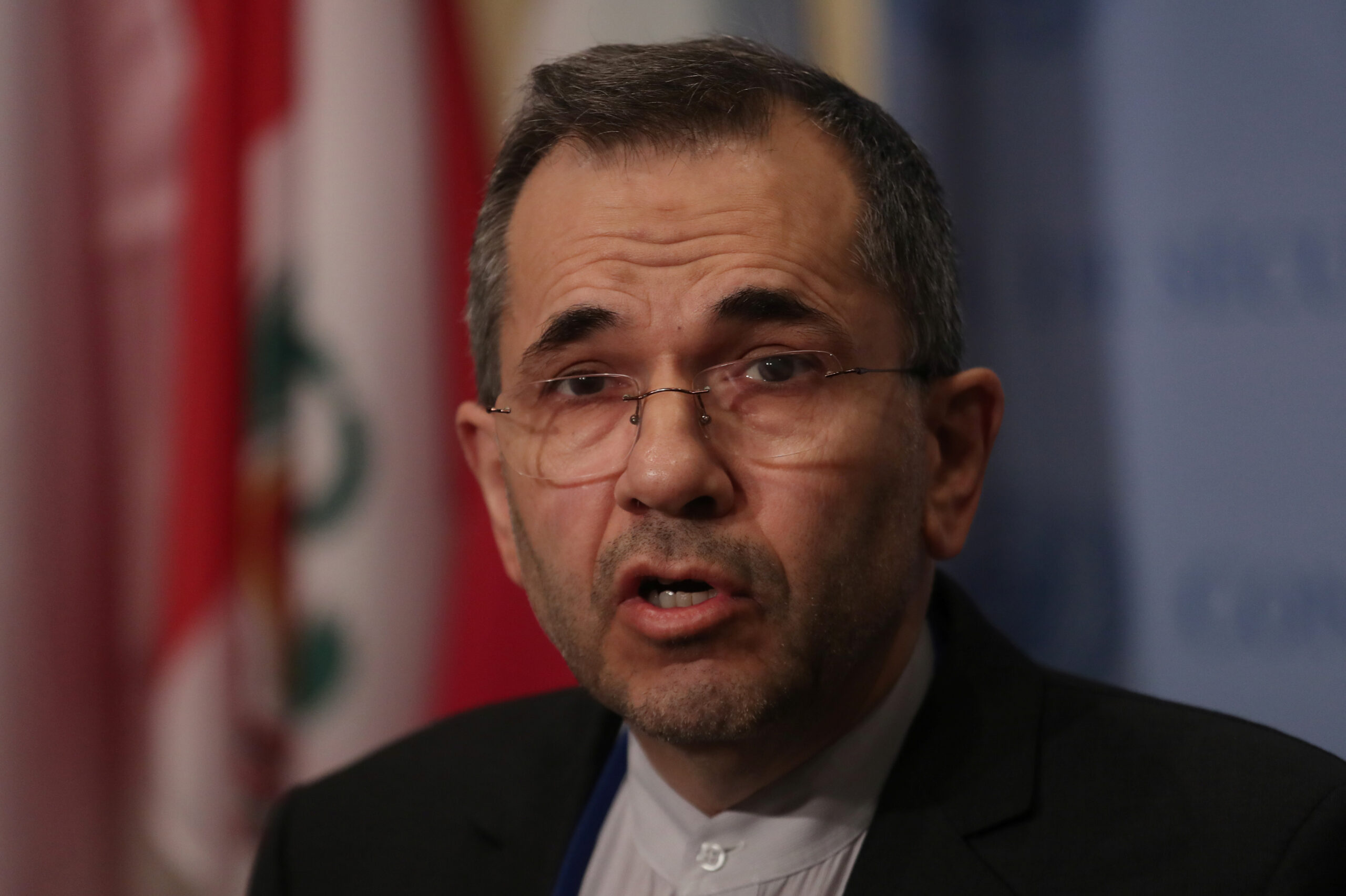
Majid Takht-Ravanchi, Iran’s deputy foreign minister for political affairs says Tehran has kept the door open to negotiations with President-elect Donald Trump’s administration, while warning the US that any attempt to reimpose “maximum pressure” on the country would fail to extract concessions.
Speaking to the Financial Times, Takht-Ravanchi said that coercion and intimidation would prove ineffective in the long-running stand-off between Iran and the West over Tehran’s nuclear program.
“As for negotiations, we need to observe US policy and decide how to respond accordingly,” Takht-Ravanchi said.
“Right now, the key question is how the new administration will approach Iran, the nuclear issue, regional security and the Middle East. It’s premature to speculate about specific outcomes.”
Takht-Ravanchi said the nuclear deal reached with the West in 2015, from which Trump later withdrew the US, “could still serve as a foundation and be updated to reflect new realities”, adding that “if the other parties return to their commitments, we have repeatedly said that we are willing to do the same”.
He added: “We do favour negotiations, as we proved [with that deal] . . . But who sabotaged the negotiations previously? It was the Trump administration who was unwilling to negotiate.”
At the same time, the veteran diplomat and former nuclear negotiator warned that if Trump again takes a tough approach, “maximum pressure will be met with maximum resistance”.
“We will continue to work around sanctions, diversify our trade partners and strengthen regional relations to maintain calm,” he added.
During his first term as US president, Donald Trump sparked a nuclear stand-off with Iran after he abandoned the 2015 accord, known as the JCPOA, that Tehran had signed with world powers, and imposed waves of sanctions on the Islamic republic in what he called a “maximum pressure” campaign.
He accused Tehran of violating the “spirit” of the agreement by funneling newfound revenue to support its regional proxies, notably Lebanon’s Hezbollah.
In retaliation, Iran dramatically expanded its nuclear activities, and is enriching uranium near to weapons-grade despite insisting its programme is for civilian purposes, Financial Times reported.
People familiar with Trump’s thinking have told the Financial Times his administration would try to “bankrupt” Iran to force the republic into talks.
The regional and nuclear crises have stoked fears in Tehran that Trump will once again try to drive Iran’s oil exports — its vital source of hard currency — to zero. In recent years Iran has substantially increased oil sales, mainly to China.
Takht-Ravanchi sought to downplay the potential for tighter oil sanctions under a second Trump presidency.
“While developments may occur, they won’t lead to significant changes,” he said, adding: “If the Trump administration decides to pursue the maximum pressure policy in the oil market again, it will surely fail. In today’s world, no single country can dictate terms to the entire international community.”
For now, he said, “We hope he doesn’t repeat the same mistake because the outcome will be no different.”
-

 Sport5 days ago
Sport5 days agoFIFA unveils Innovative Club World Cup Trophy ahead of new tournament in 2025
-
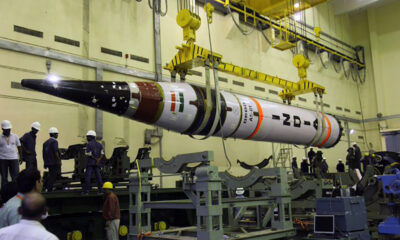
 Regional5 days ago
Regional5 days agoIndia’s successful test of hypersonic missile puts it among elite group
-
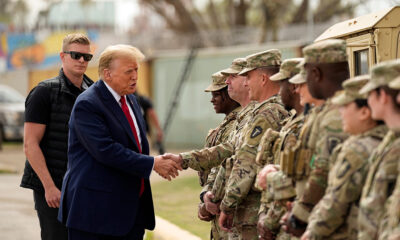
 Latest News5 days ago
Latest News5 days agoTrump team compiling list of military officers responsible for US withdrawal from Afghanistan
-

 Latest News5 days ago
Latest News5 days agoCanada sent 19 failed asylum seekers back to Afghanistan last year
-

 Sport4 days ago
Sport4 days agoAbu Dhabi’s thrilling T10 tournament just days away
-

 World4 days ago
World4 days agoBiden allows Ukraine to use US arms to strike inside Russia
-

 Sport4 days ago
Sport4 days agoAfghanistan beat UAE by 169 runs in U19 tri-series
-
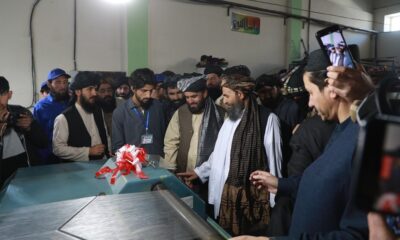
 Business5 days ago
Business5 days agoMullah Baradar inaugurates a blanket factory in Kabul




